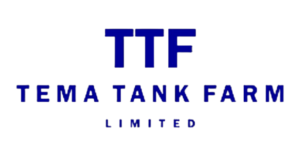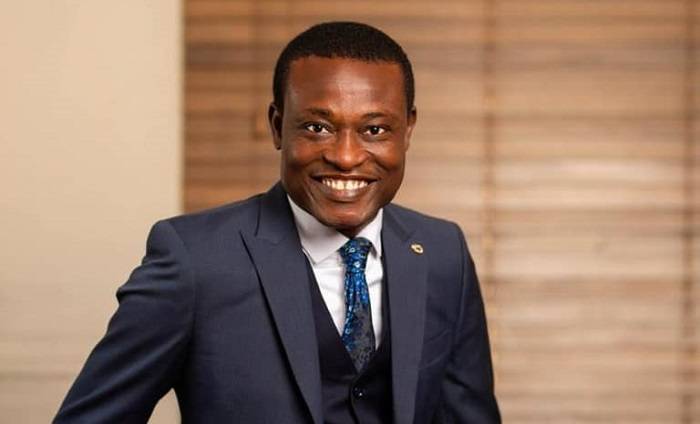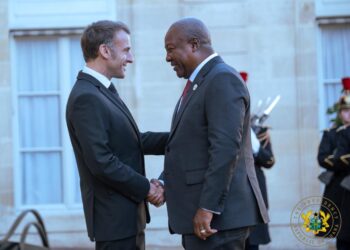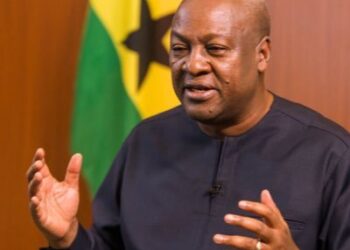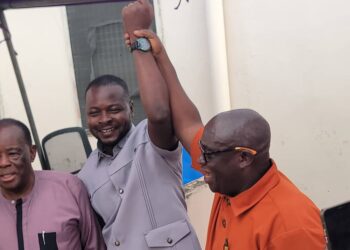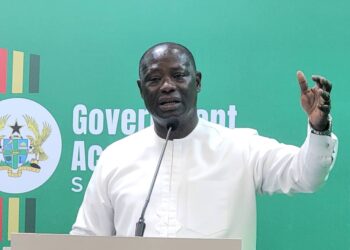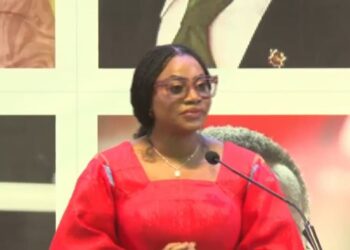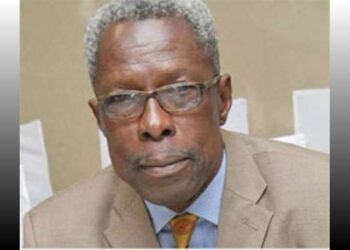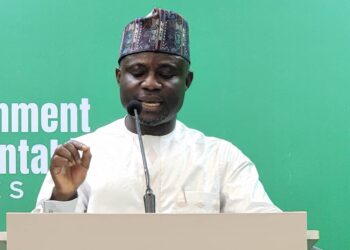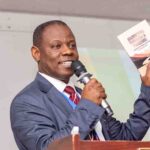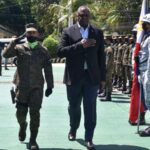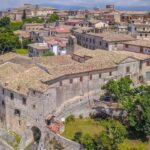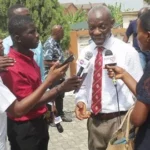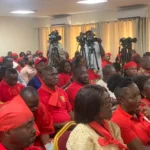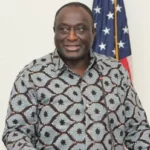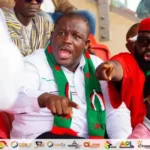Former Senior Presidential Aide Dr Tony Aidoo has expressed deep frustration with Ghana’s handling of corruption, blaming both government inaction and the performance of the Office of the Special Prosecutor (OSP) for the ongoing problems.
Dr Aidoo expressed frustration over the ineffectiveness of the OSP and advised the anti-graft body to adopt a different approach in the fight against corruption in an exclusive interview on the Thursday, July 17 edition of JoyNews.
“So far, you’ve had the Attorney General in quest for transparency, coming out to reveal steps that he is taking to bring certain persons to book. But so far, we haven’t seen any prosecution yet, and I don’t trust the Special Prosecutor. He talks big, he talks small, and he doesn’t know what he is doing.”
He continued, “He is a shame; is he protecting them? Look at the mess he made with the Cecilia Dapaah case. He has never succeeded in any prosecution on corruption, so what are we paying him for?
He criticised the OSP’s failure to build solid cases, suggesting this is why prosecutions are not going anywhere.
“If you build up your case, the judges will not ignore your evidence. But if you fail to present convincing evidence, then that is what you are going to get from the judgment. I don’t think he is building his cases well; he talks too much.”
I will advise him to talk less and do more,” he said.
The Office of the Special Prosecutor (OSP) in Ghana is a specialised, independent anti-corruption agency established by an Act of Parliament, the Office of the Special Prosecutor Act, 2017 (Act 959).
The OSP is fortified with specialised powers, including intelligence gathering, surveillance, counter-surveillance, and police functions, making it a comprehensive anti-graft agency. Its vision is to render corruption costly and unattractive in all its forms in both the public and private sectors through sustained repression and suppression.
It was created as a flagship institution to specifically address the shortcomings of existing anti-corruption bodies and provide a more robust and comprehensive approach to combating corruption in the country.
Former Senior Presidential Aide Dr Tony Aidoo has expressed deep frustration with Ghana’s handling of corruption, blaming both government inaction and the performance of the Office of the Special Prosecutor (OSP) for the ongoing problems.
Dr Aidoo expressed frustration over the ineffectiveness of the OSP and advised the anti-graft body to adopt a different approach in the fight against corruption in an exclusive interview on the Thursday, July 17 edition of JoyNews.
“So far, you’ve had the Attorney General in quest for transparency, coming out to reveal steps that he is taking to bring certain persons to book. But so far, we haven’t seen any prosecution yet, and I don’t trust the Special Prosecutor. He talks big, he talks small, and he doesn’t know what he is doing.”
He continued, “He is a shame; is he protecting them? Look at the mess he made with the Cecilia Dapaah case. He has never succeeded in any prosecution on corruption, so what are we paying him for?
He criticised the OSP’s failure to build solid cases, suggesting this is why prosecutions are not going anywhere.
“If you build up your case, the judges will not ignore your evidence. But if you fail to present convincing evidence, then that is what you are going to get from the judgment. I don’t think he is building his cases well; he talks too much.”
I will advise him to talk less and do more,” he said.
The Office of the Special Prosecutor (OSP) in Ghana is a specialised, independent anti-corruption agency established by an Act of Parliament, the Office of the Special Prosecutor Act, 2017 (Act 959).
The OSP is fortified with specialised powers, including intelligence gathering, surveillance, counter-surveillance, and police functions, making it a comprehensive anti-graft agency. Its vision is to render corruption costly and unattractive in all its forms in both the public and private sectors through sustained repression and suppression.
It was created as a flagship institution to specifically address the shortcomings of existing anti-corruption bodies and provide a more robust and comprehensive approach to combating corruption in the country.
doesn’t know what he is doing – Tony Aidoo
Former Senior Presidential Aide Dr Tony Aidoo has expressed deep frustration with Ghana’s handling of corruption, blaming both government inaction and the performance of the Office of the Special Prosecutor (OSP) for the ongoing problems.
Dr Aidoo expressed frustration over the ineffectiveness of the OSP and advised the anti-graft body to adopt a different approach in the fight against corruption in an exclusive interview on the Thursday, July 17 edition of JoyNews.
“So far, you’ve had the Attorney General in quest for transparency, coming out to reveal steps that he is taking to bring certain persons to book. But so far, we haven’t seen any prosecution yet, and I don’t trust the Special Prosecutor. He talks big, he talks small, and he doesn’t know what he is doing.”
He continued, “He is a shame; is he protecting them? Look at the mess he made with the Cecilia Dapaah case. He has never succeeded in any prosecution on corruption, so what are we paying him for?
He criticised the OSP’s failure to build solid cases, suggesting this is why prosecutions are not going anywhere.
“If you build up your case, the judges will not ignore your evidence. But if you fail to present convincing evidence, then that is what you are going to get from the judgment. I don’t think he is building his cases well; he talks too much.”
I will advise him to talk less and do more,” he said.
The Office of the Special Prosecutor (OSP) in Ghana is a specialised, independent anti-corruption agency established by an Act of Parliament, the Office of the Special Prosecutor Act, 2017 (Act 959).
The OSP is fortified with specialised powers, including intelligence gathering, surveillance, counter-surveillance, and police functions, making it a comprehensive anti-graft agency. Its vision is to render corruption costly and unattractive in all its forms in both the public and private sectors through sustained repression and suppression.
It was created as a flagship institution to specifically address the shortcomings of existing anti-corruption bodies and provide a more robust and comprehensive approach to combating corruption in the country.
